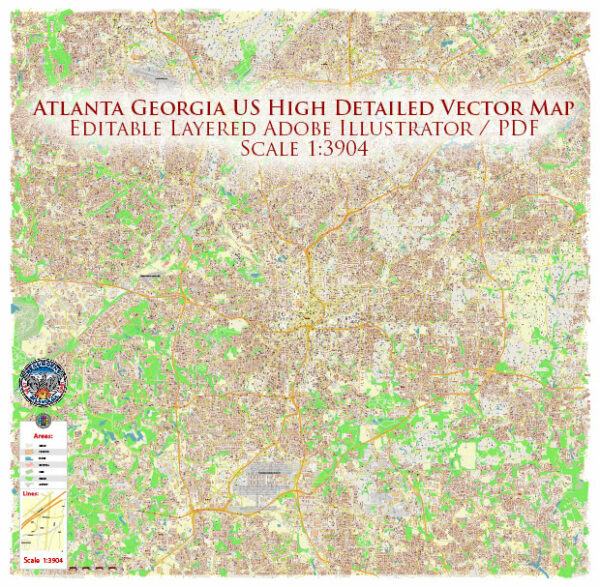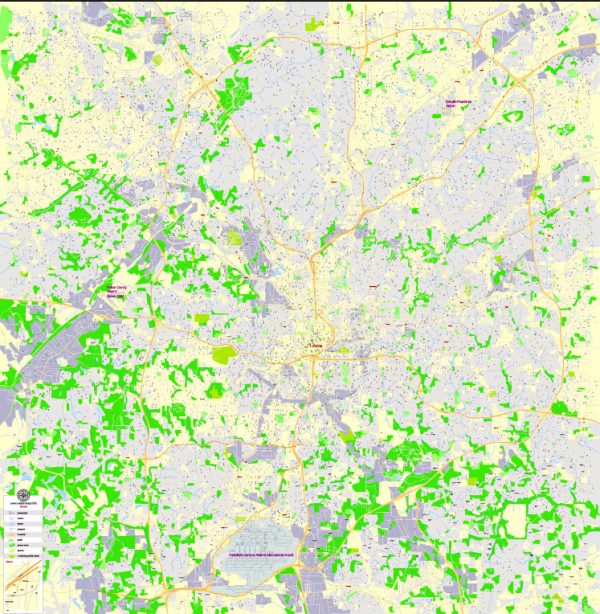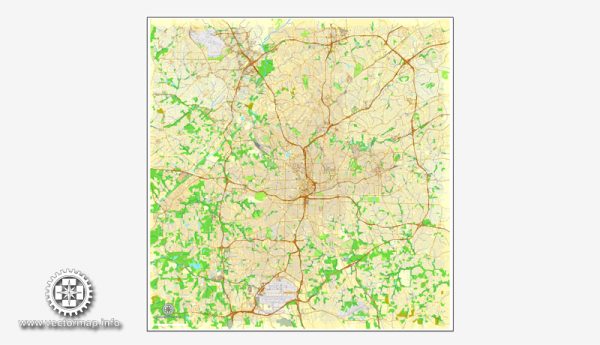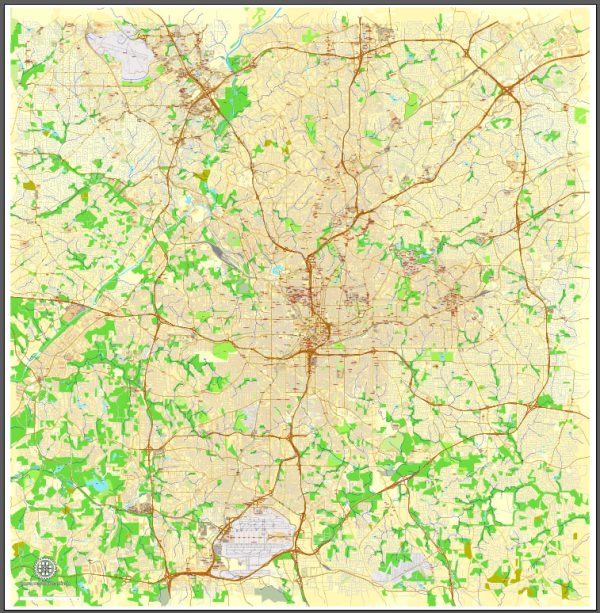Atlanta, Georgia, has a rich history that spans from its founding to the present day. Here’s a brief overview of the city’s history:
- Founding and Early History: Atlanta was founded in 1837 as “Terminus,” the endpoint of a major railroad line. It was initially a transportation hub for the Western and Atlantic Railroad. The city’s name was changed to “Marthasville” in 1843, and then to “Atlanta” in 1847. It quickly grew as a result of its strategic location for railroads.
- The Civil War: During the American Civil War, Atlanta played a significant role. It was a major Confederate supply and logistics center. The city was captured by Union forces under General William T. Sherman in September 1864, leading to the famous Battle of Atlanta. After the war, Atlanta faced a period of post-war reconstruction.
- Reconstruction and Growth: Atlanta’s post-Civil War recovery was remarkable. The city’s leaders, including Mayor Ivan Allen Jr., worked to rebuild and modernize the city. The city’s economy diversified, and it became a hub for commerce, industry, and transportation.
- Civil Rights Movement: Atlanta was a major center for the Civil Rights Movement in the 1950s and 1960s. Martin Luther King Jr. was born in Atlanta, and the city played a pivotal role in the fight for civil rights. The Southern Christian Leadership Conference (SCLC) was founded in Atlanta, and many significant civil rights events took place in the city.
- Modern Era: In recent decades, Atlanta has grown into a major economic and cultural center in the Southeastern United States. It is known for its diverse population, vibrant arts scene, and thriving businesses. The city hosted the 1996 Summer Olympics, which contributed to its development and infrastructure improvements.
- Economic and Cultural Hub: Atlanta is home to major corporations, including The Coca-Cola Company, Delta Air Lines, and Home Depot. It is also a major center for film and television production, earning it the nickname “Hollywood of the South.”
- Transportation: Atlanta is known for its extensive transportation network, with Hartsfield-Jackson Atlanta International Airport being one of the world’s busiest airports. The city’s traffic and transportation infrastructure have been subjects of discussion and improvement efforts.
- Demographics: Atlanta is a diverse and multicultural city, with a significant African American population. It is often referred to as the “Black Mecca” due to its historical and contemporary importance for the African American community.
- Cultural Attractions: Atlanta offers numerous cultural attractions, including the Martin Luther King Jr. National Historic Site, the Atlanta History Center, the High Museum of Art, and the Georgia Aquarium.
- Sports: Atlanta is home to several professional sports teams, including the Atlanta Braves (MLB), Atlanta Falcons (NFL), Atlanta Hawks (NBA), and Atlanta United FC (MLS).
Atlanta’s history is marked by resilience, growth, and social change. It continues to be a dynamic and evolving city that plays a significant role in the American South and the nation as a whole.






 Author: Kirill Shrayber, Ph.D. FRGS
Author: Kirill Shrayber, Ph.D. FRGS